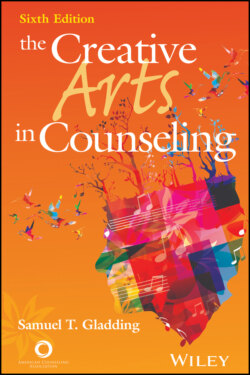Читать книгу The Creative Arts in Counseling - Samuel Gladding T., Samuel T. Gladding - Страница 18
Ancient Cultures and the Arts
ОглавлениеAncient civilizations valued the creative arts for what they believed were their healing properties as well as their aesthetic properties (Atkins et al., 2003). For example, the ancient Egyptians, as early as 500 B.C.E., encouraged the mentally ill “to pursue artistic interests and attend concerts and dances” (Fleshman & Fryear, 1981, p. 12). The idea was that, through such activities, feelings could be released and people would be made whole again. Likewise, the ancient Greeks used drama and music as a means of helping the disturbed achieve catharsis, relieve themselves of pent-up emotions, and return to balanced lives. The connection and importance of music in the lives of the Greeks is symbolized in the Greek god Apollo, who was both the god of music and the god of medicine. The Greek philosophers Plato and Aristotle often talked about the effects of music and its importance to the health of the whole person (Peters, 2001). They advocated the careful control of music to promote many moods, from relaxation to excitement (Burkholder et al., 2020).
The early Hebrews used music and lyrical verse too in helping to develop integrated and healthy relationships. For example, when individuals, such as King Saul, were emotionally volatile, music served to calm them down (MacIntosh, 2003). Music was also used to remind the Hebrew people of the covenant relationship they shared with Yahweh (God) and with one another. The psalms, for instance, played a major part in worship and in creating a sense of community through religious rituals. At about this same time, in ancient Asian cultures, such as in China, music was emphasized as well. For example, Confucius loved music and believed that it was essential for a harmonious life (Y. Lai, 1999).
